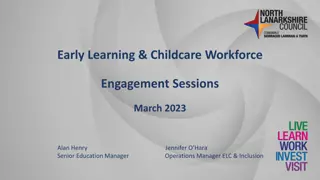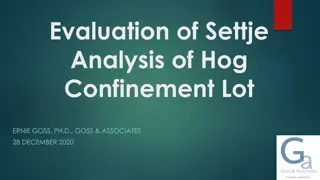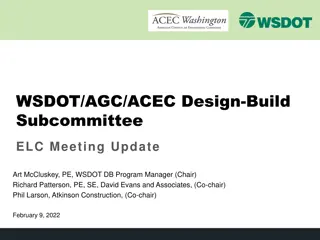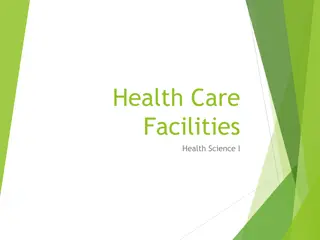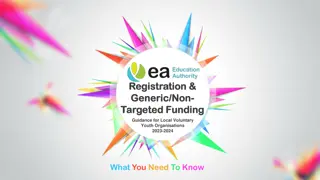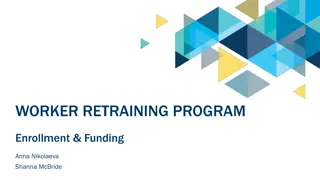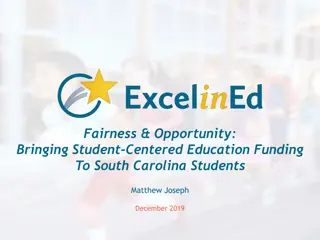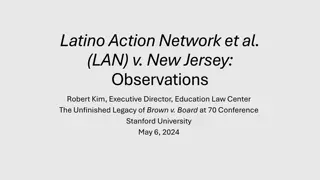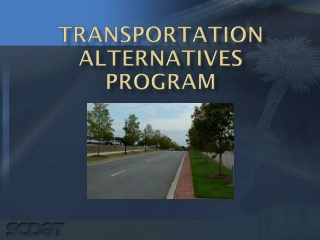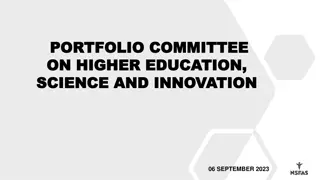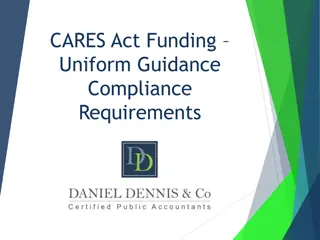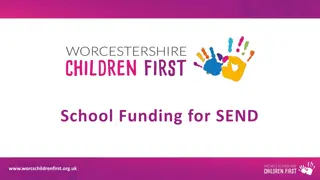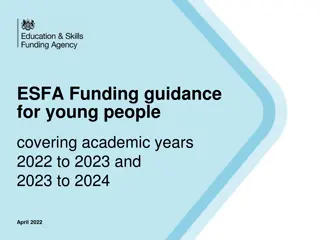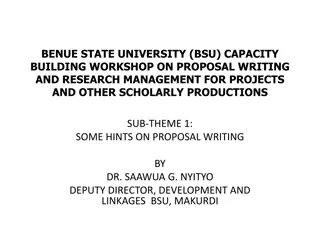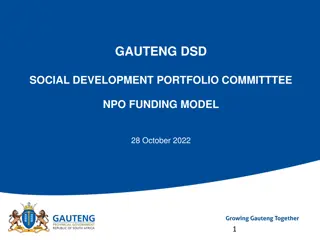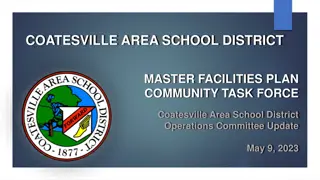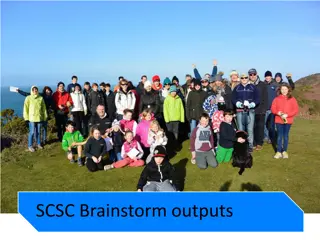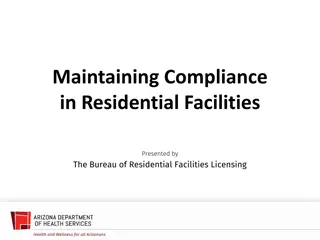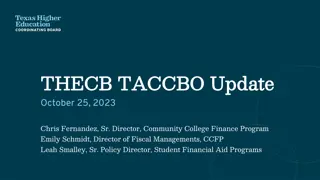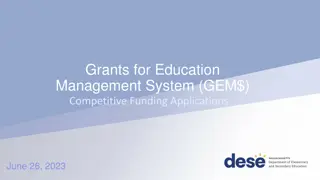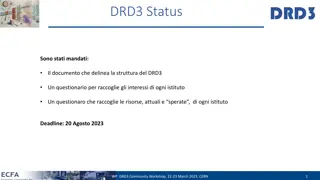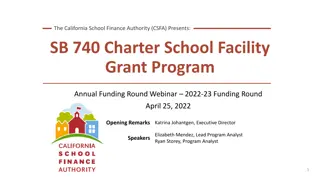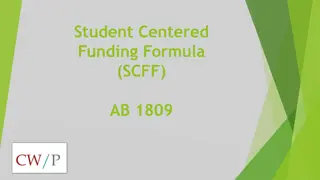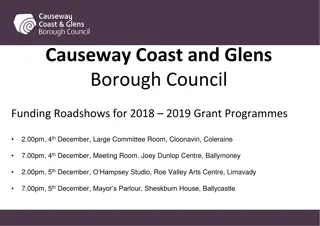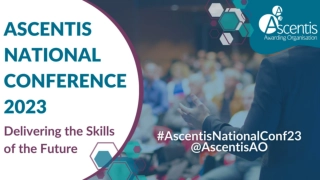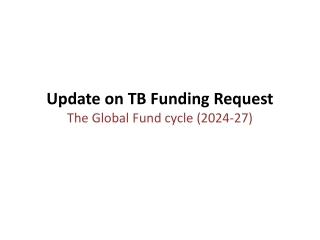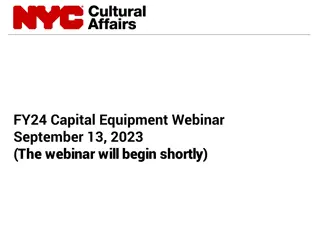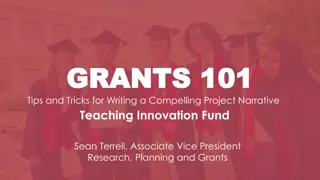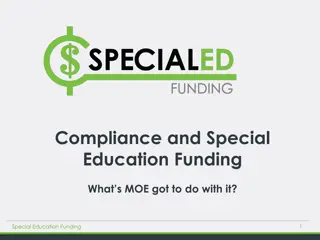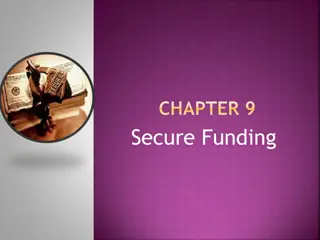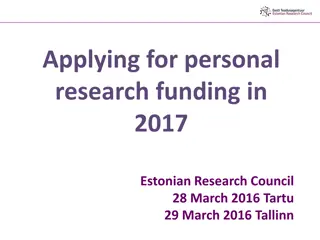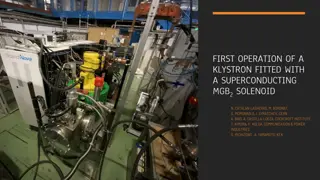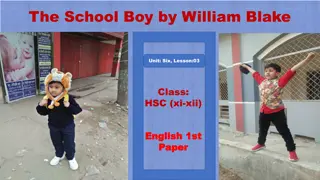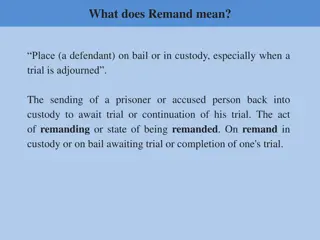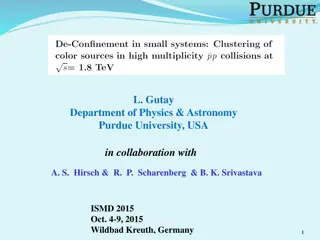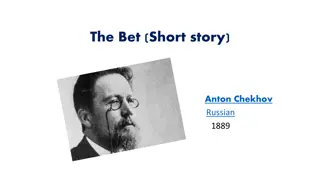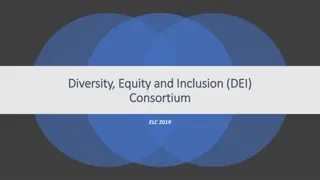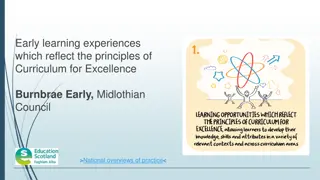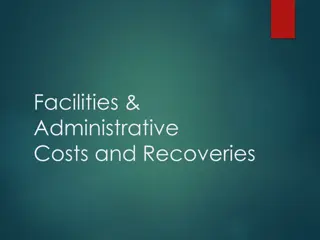ELC Confinement Facilities Funding Overview
The ELC Confinement Facilities Funding initiative, updated as of August 31, 2021, provides essential financial support for the detection and mitigation of COVID-19 in various confinement facilities. The total award of $18,200,000 is allocated towards personnel, supplies, allowable costs like computer-related items and ventilation upgrades, while unallowable costs include research and vaccination delivery. Learn about funding details, project period, and permissible expenses in this comprehensive overview.
Download Presentation

Please find below an Image/Link to download the presentation.
The content on the website is provided AS IS for your information and personal use only. It may not be sold, licensed, or shared on other websites without obtaining consent from the author. Download presentation by click this link. If you encounter any issues during the download, it is possible that the publisher has removed the file from their server.
E N D
Presentation Transcript
ELC Confinement Facilities Funding Updated August 31, 2021
Basic ELC Funding Information ELC stands for: Epidemiology and Laboratory Capacity for Prevention and Control of Emerging Infectious Diseases It is the largest Grant for CEDEP activities The ELC Detection & Mitigation of COVID-19 in Confinement Facilities award is a supplement to that yearly Grant, meant to directly address the COVID-19 Pandemic in confinement facilities like prisons, jails, juvenile confinement facilities, police lock-ups, and community confinement facilities The total award is $18,200,000 TDH: $2,730,000 Confinement Facilities: $15,470,000 These funds expire July 31, 2024 35-month project period Possible to extend the project period (no-cost extension request)
Allowable Costs Personnel/Benefits/Indirect State employees, temps., overtime, contract staff, etc. Personnel related to testing and mitigation efforts Contracts Inter-agencies (DOC, DOJ, etc.) Community treatment centers Halfway houses restitution centers Mental health facilities Alcohol or drug rehabilitation centers Residential re-entry centers Private laboratories or other non-commercial healthcare entities Supplies PPE, collection supplies, cleaning supplies, etc.
Allowable Costs Computer related items Hardware and software needed for reporting Equipment Conferencing technology Laboratory equipment for COVID-19 testing Ventilation upgrades that support prevention of COVID-19 Printing/Duplicating training staff and inmates on sanitation Minor construction E.g., resurfacing parking lots for safer testing locations, storage facilities, minor building improvements, etc. Costs associated with operating alternate/pop-up testing sites Costs associated with educating on personal health behaviors and choices
Unallowable Costs Research Delivery of clinical care (including administering vaccines) Lobbying Vaccines Telehealth infrastructure Direct incentives (cash payments) Wastewater surveillance of confinement facilities (strong argument would have to be made for this to be allowable) Costs associated with quarantine/isolation Sick leave/PTO required of staff exposed to COVID-19 Funding of safe houses
Contracts Information Interagency Agreements (IA or IGA) Between 2 state agencies or between a state agency and State School Very fast to process; basically a formally written handshake Delegated Authority (DA or DGAs) Helps to get several, similar contracts out in a hurry using an approved template Grant contract that has a beneficiary other than the State GG- Grant to Local Government in Tennessee GR- Grant to everyone else Fee for Service- State is the beneficiary of contract (non- grant)
Invoicing BGM will be the main contacts for submitting invoices or any issues involving invoicing All ELC funds should be invoiced and tracked separately from any other funding The provided invoice template should be used for all monthly ELC invoicing When revisions, amendments or close-out/roll-over are necessary, BGM staff will reach out
Contact Information If you have any additional questions regarding the ELC funding, please contact the Project Manager listed below: Jennifer Sanchez Jennifer.Sanchez@tn.gov (615) 532-6085 If you have any additional questions regarding the ELC contracts, please contact the Contracts team listed below: Chris Wiesmueller Jessie Smotherman Van Bryant Justin Garrett Christopher.L.Wiesmueller@tn.gov (615) 741-4738 Jessie.Smotherman@tn.gov Van.R.Bryant@tn.gov Justin.Garrett@tn.gov (615) 291-5848 (615) 741-9209 (615) 741-9215



